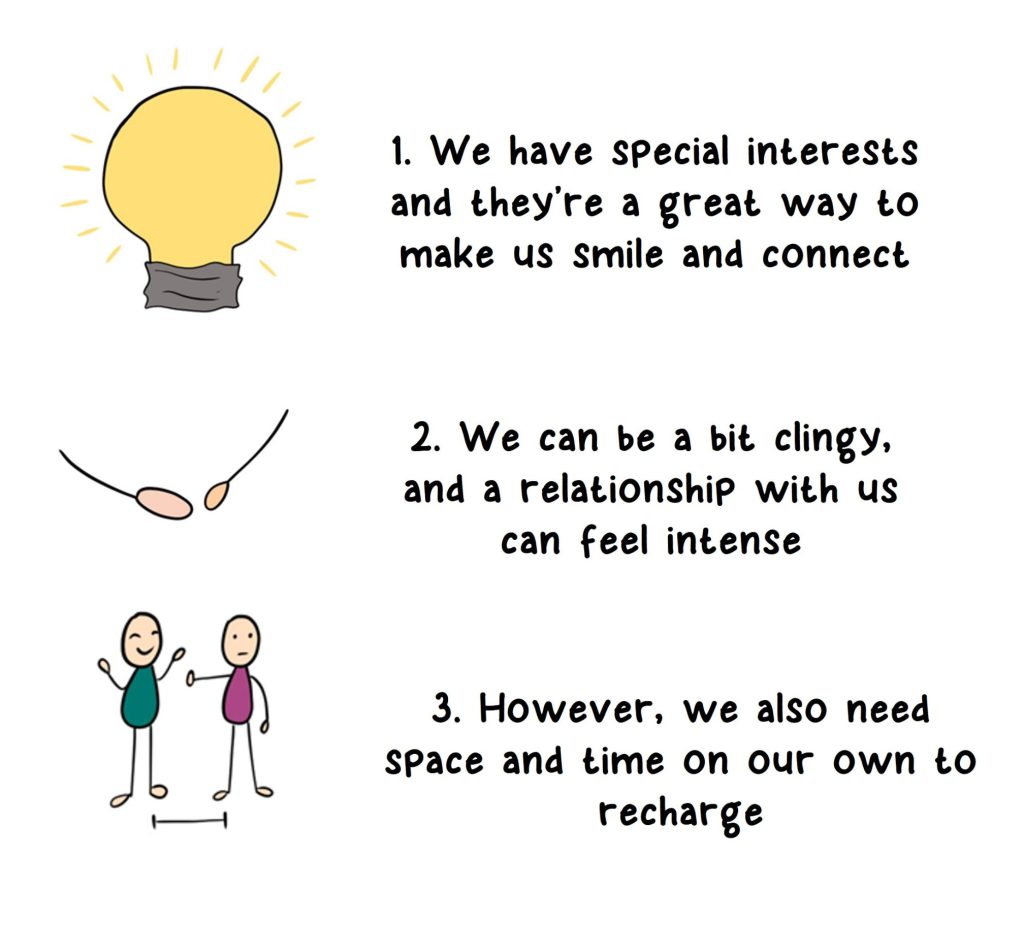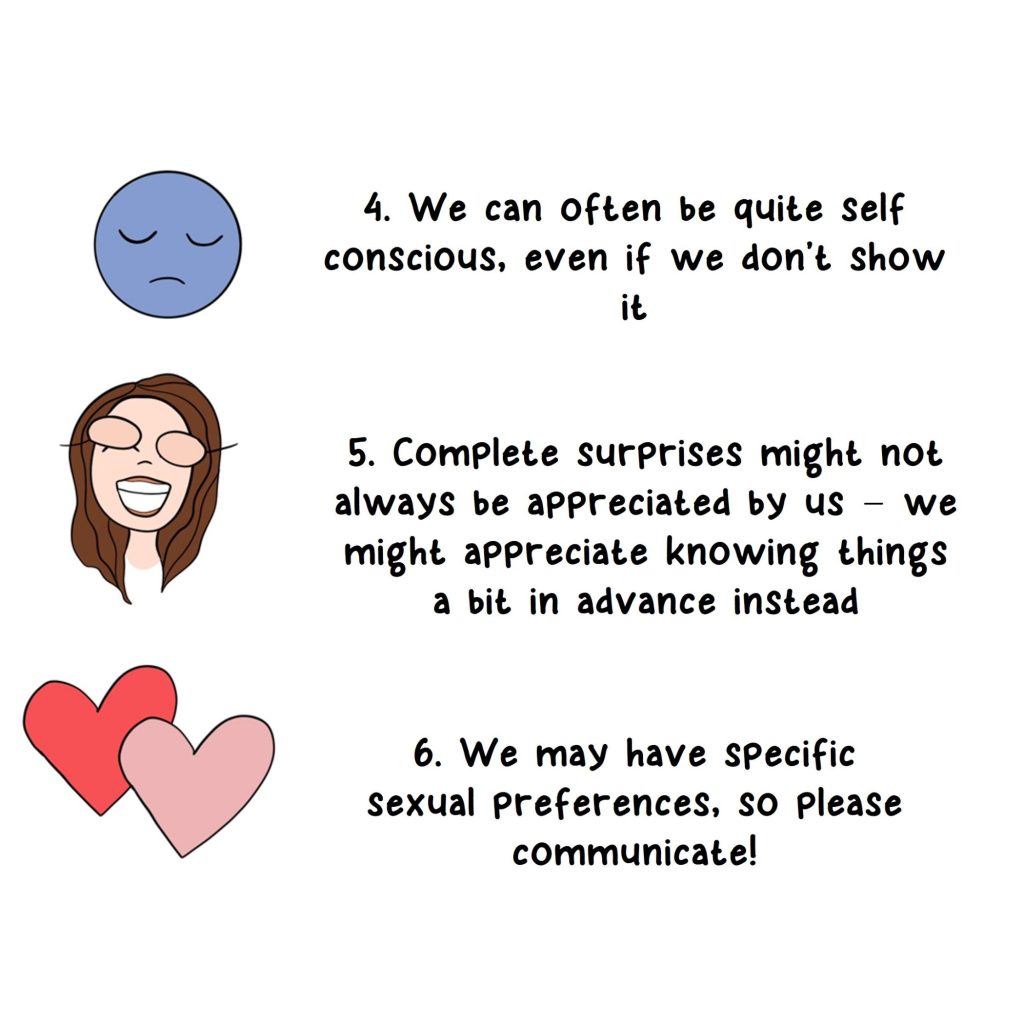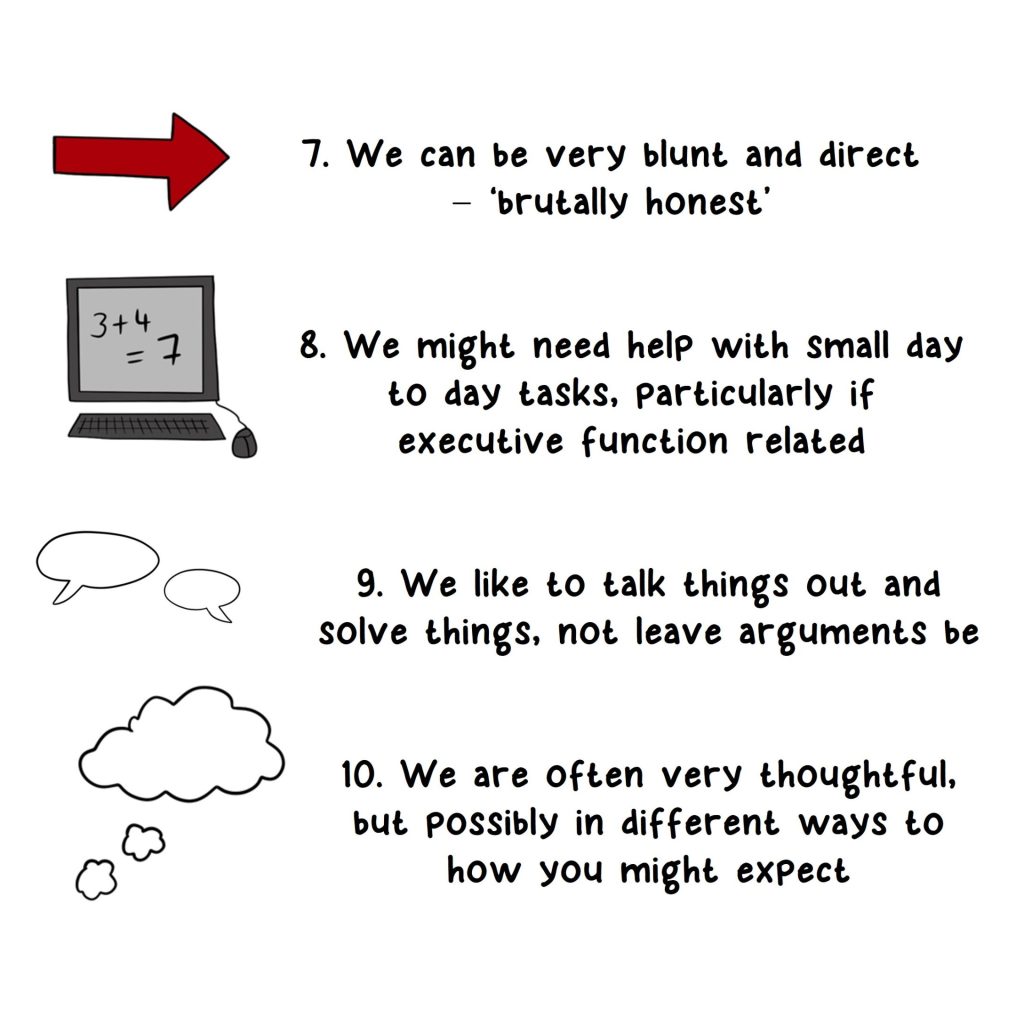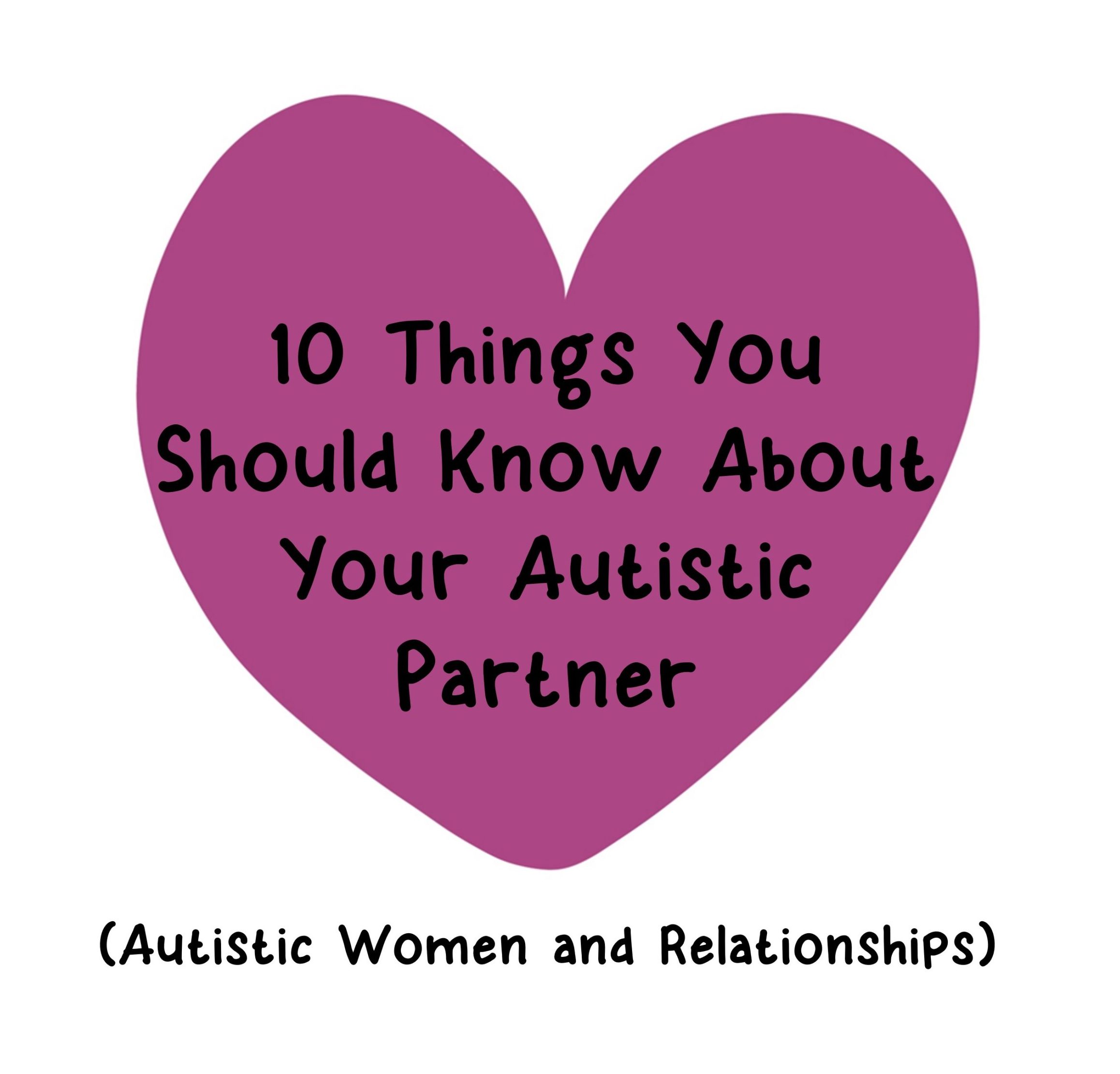Keeping up with my series on autistic women and relationships, I thought it might be nice to share some helpful tips or things that it can be useful to explain to a potential partner, to help them understand how you manage relationships. Obviously these are generalisations, and every single person is an individual; not all of these may apply to you, but they might make you think of other things you’d like your partner to know..either way, I hope you find it useful. Whether their partner is neurodiverse or not, autistic individuals are just as able as anyone to form successful, supportive, positive relationships, and actually I would argue we can make some of the most interesting, exciting and caring partners around!

- We have special interests! Special interests are one of the things that make many individuals with autism really unique! I love to talk endessly about my special interests, and it means the world to me when my family, friends, and partner show a bit of an interest in it too, and smile at me when I list to them all the new things I’ve learn about the Philippines, or what Marmite products have been released in the last two years. Rather than being ashamed, the people around me have made me proud of my not-so-useful knowledge, and it’s an easy go-to for gifts and surprises. It’s even more exciting when they join in with one, like when my grampy joins in with a food review, or my best friend and I collaborate on some autism research!
- We’re clingy – autistic women tend to form intense friendships and relationships, wanting their partner to be their best friend, and I certainly relate to this. I can be very intense and slightly obsessive, which is great if my partner is similar, but doesn’t work if they are someone who prefers to live a very separate life.
- Despite being clingy, we also need space. A lot of people I have been with have found this confusing, but I find the world exhausting. Socialising, trying to deal with sensory issues, carrying out executive function tasks like emailing, and overall just managing life can tire me out, and so sometimes I just need time to recharge, or even process a sentence. Even though I love spending time with my partner, sometimes I just want to be around them without having to speak or interact.

- We’re often quite self conscious. Having spent years growing up feeling like an outcast and inadequate, I seem to be subconsciously over-concerned with fitting in, doing things right, and being good enough. I will often replay conversations in my head, worrying I said the wrong thing or wasn’t funny enough. I also tend to feel just overall like I don’t deserve my partner, or friends, and worry they will leave me (or on bad days, feel guilty for existing and allowing them to waste their time on me). I can seek reassurance for this frequently, which can be annoying.
- We don’t like complete surprises. I enjoy little surprises, and spontaneity, but only within certain limits. I love, if I know in advance we’re going to a surprise restaurant, being treated to a meal somewhere, but if my partner suddenly tells me at lunchtime that he’s taking me out for dinner when I’ve had it in my head I’d be relaxing at home that evening, it’s going to be very alarming and anxiety provoking for me. Learning what works for your partner is key, and there’s nothing wrong with discussing it (even if it seems a little unromantic!).
- Listen to our sexual preferences. Many autistic people have a different understanding of sex and sexuality, as well as specific sensory profiles, which can make the way they approach intimacy more unique. Talk to eachother and learn about your sexual preferences, what is enjoyable, what might cause discomfort – communication is again, so important.

- We can be very blunt and direct. I am VERY blunt and direct, to the point where I may accidentally offend my partner, or say something hurtful or inappropriate. It has taken a while even for my family to get used to this, and to bear in mind when I say things how literal and logical I am. For a long time, I was known as ‘poison tongue’! It has also been confusing for my family and partners to observe me saying potentially hurtful things, but then move straight on as if nothing has happened. I tend to not tie emotions to facts, and it’s something I am working on, but it’s definitely important for the people around me to be aware of!
- We might need help with day-to-day tasks, particularly when stressed. No, we aren’t perfect, and there are lots of things I find tough that make me ashamed – but friends and family accepting these and helping me with them is invaluable, and makes me feel incredibly..loved.
- We like to solve things – not leave arguments be. I cannot stand people ignoring me, or ignoring people myself..I hate arguing or even there being conflict…so if there is an issue, I want to argue it out until a resolution is solved, which almost sounds paradoxical! Sweeping things under the rug, or ‘revisiting later’ just doesn’t work for me, and so I tend to push debating things until we find a solution or set of actions to carry out. It’s not because I want to argue – it’s actually the opposite!
- We’re thoughtful in our own ways. I don’t always like physical contact, nor am I always good at verbalising how I feel. But I love to give my partner little surprise gifts or notes, and I want to support them with any of their goals. I like to think I am a very thoughtful person, even if I can come across quite cold, especially when I’m struggling with sensory issues, executive function, or just low mood.
Did you relate to any of these? Having written them out and scanned them over, I think it’s quite interesting to apply them to a ‘neurotypical’ relationship..because actually all of these apply to any partner, be they autistic or not. You should always learn about a partner’s sexual preferences, show an interest in their interests, help them out with the things they find tough, give them time when they need it, learn how they show their love, etc!
On the other hand – you may find that not ALL of these apply to you..and that’s also perfectly okay!
Please let me know if you think there’s some important bits missing – a part two might be warranted!

Leave a Reply